June 1, 2025 | 16:49 GMT +7
June 1, 2025 | 16:49 GMT +7
Hotline: 0913.378.918
June 1, 2025 | 16:49 GMT +7
Hotline: 0913.378.918

The Russia-Ukraine conflict affects the import and export activities of commodities such as seafood, fertilizers, and animal feed.
According to the Ministry of Agriculture and Rural Development, the Russia-Ukraine conflict, along with economic sanctions from the West as well as the reaction from all sides of Russia, have had a comprehensive and profound impact on the world economy, such as: shutting down the worldwide payment system (SWIFT) and major international banks of Russia; freezing the assets of large corporate banks; prevent import and export; credit suspension, supply chain disruption, ruble devaluation, inflation increase, global stock market instability...
In that context, the Ministry of Agriculture and Rural Development assessed that Vietnam is not an exception to the negative economic impacts caused by the Russia-Ukraine conflict, especially risks of international payments and supply chain disruptions for exports and imports (large ship corporates have declared no shipping to and from Russia, increasing transportation costs), increased input costs for essential imported goods, declining demand in Russia, Ukraine and related countries.
Agricultural trade between Vietnam and Russia, and Ukraine has been significantly reduced. Every year, Vietnam exports about US$ 500 million to Russia (US$ 550 million in 2021) of agricultural, forestry, and fishery products. Of which there are some significant products such as seafood (US$ 164 million, accounting for 3% of the total seafood exports), coffee (US$ 173 million, accounting for about 6%), pepper, and cashew (US$ 60 million, accounting for about 2%).
When the conflict broke out, export transactions to Russia were halted due to banking risks, lack of shipping, and high costs. Domestic enterprises now have to handle inventory or export to other markets.
Regarding imports, the total value of agricultural, forestry, and fishery turnover from Russia to Vietnam in 2021 is about US$ 500 million. In which, there are many input materials for domestic agricultural products such as wheat (under normal conditions, it can reach 1 million tons, accounting for about 20% of total wheat imports), corn (3% of total maize imports) for animal feed; fertilizers (10% of total fertilizer imports).
The lack of shipping lines and the increase in transportation costs make Vietnamese importers stop trading with Russia and switch to finding suppliers from other countries such as Australia, South America, and South Africa. In addition, supply shortages from Russia and Ukraine increase the price of input materials for production globally. The prices of input materials such as wheat, corn, etc., have increased by 10-20%, fertilizer prices have increased by over 20% recently, adversely affecting the livestock and farming industries in the country.
Facing the complicated situation of the Russia-Ukraine conflict, the Ministry of Agriculture and Rural Development monitors the situation and closely coordinates with the Industry Association and the State Bank to support payments for businesses that have been affected. There are goods exported to Russia, but financial transactions are stalled.
Also, the Ministry of Agriculture and Rural Development will work with industry associations such as the Vietnam Association of Seafood Exporters and Producers (VASEP), Coffee and Cocoa Association (VICOFA), Cashew Association (Vinacas), Timber Association to find solutions to deal with immediate difficulties due to market stagnation in Russia and Ukraine; and diversify export markets, including markets that previously had a large number of imports (EU, China, the Middle East, etc.) from Russia and Ukraine for seafood, wood and furniture products.
Simultaneously, the Ministry of Agriculture and Rural Development promoted working with enterprises importing input materials to discuss solutions to stabilize input prices for domestic agricultural production.
In the long term, the Ministry of Agriculture and Rural Development will have policies to attract businesses to invest in taking the initiative in essential input materials for agricultural production, processing systems, and agricultural logistics.
Translated by Ha Phuc
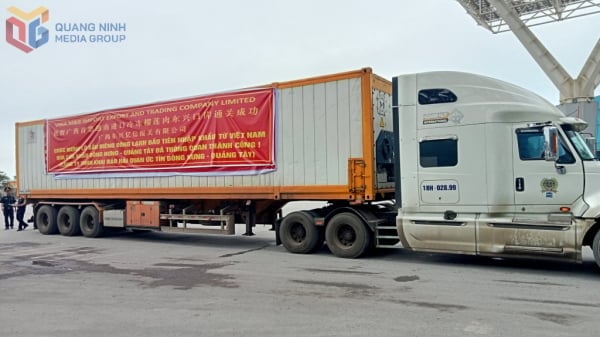
(VAN) After the talks on May 28, Vietnam successfully exported its first batch of frozen durians to China, marking a new milestone in agricultural trade cooperation between the two countries.
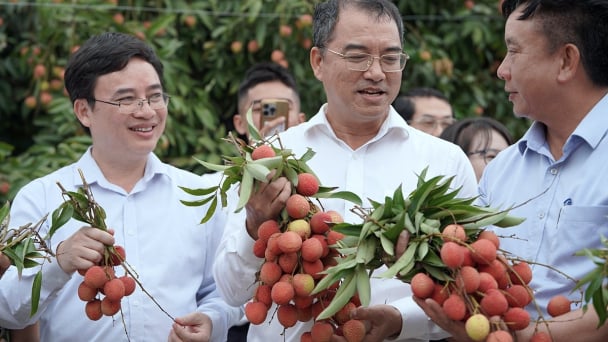
(VAN) Several major companies, such as Red Dragon and Ameii Vietnam, have signed purchasing agreements for the 2025 season, targeting markets including Japan, the United States, and the EU.
/2025/05/30/5010-5-173638_943.jpg)
(VAN) On May 29, at the GO! My Tho Trading Center, the Tien Giang Department of Industry and Trade, in collaboration with Central Retail Corporation, held the opening ceremony of the 3rd Fruit Festival 2025.
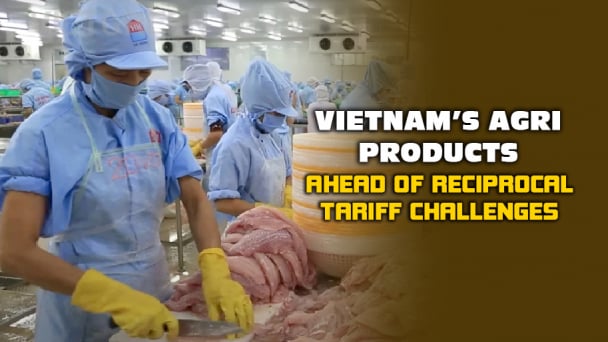
(VAN) Reciprocal tariffs are exerting pressure on U.S. exports, prompting Vietnamese firms to shift their focus to Muslim markets, Thailand, and Brazil.
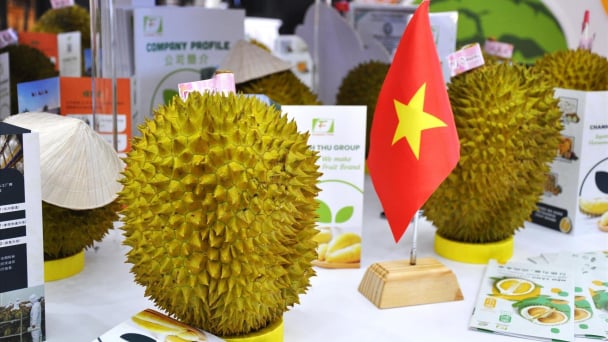
(VAN) A free booth for two years at Xinfadi, Beijing's largest wholesale market, will be allocated to Vietnam's agricultural products.
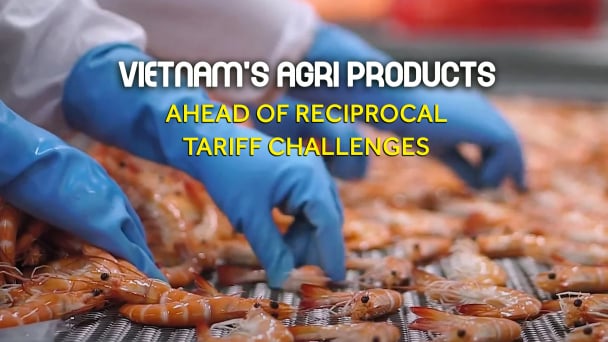
(VAN) Vietnamese shrimp exporters are actively looking for alternative markets and accelerating shipments to the United States in response to the pressure of impending reciprocal tariffs. This is occurring during a temporary tariff suspension.

(VAN) The import-export turnover between Vietnam and Singapore rose amid a trade rebound, with machinery, electrical equipment, and fuels making up the majority of the transaction value.